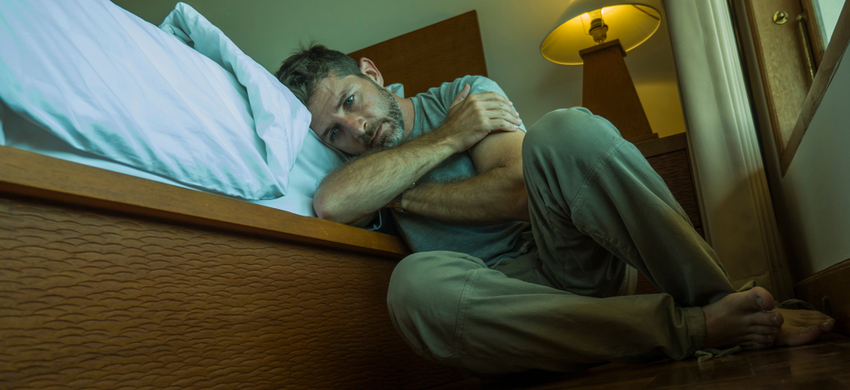Divorce and Sobriety
What Is The Link Between Divorce and Sobriety
Table of Contents
If you are going through a divorce, you may wonder about the link between divorce and sobriety.
For anyone trying to maintain their sobriety, a marriage’s breakup can put a major strain on drug or alcohol recovery.
Awareness of the risks can help you make it through without falling back into substance use.
Divorce is common in the U.S. In fact, close to half of everyone who gets married will go through this process.
Rates are even higher for people who get married more than once.
Some people divorce on friendly terms.
However, others go through major disputes with their soon-to-be ex-partners.
No matter which of these categories you belong to, divorce can be an extremely painful process.
And if you are recovering from drug or alcohol problems, the additional stress can endanger your sobriety.
Luckily, there are things you can do to remain substance-free while going through these trying times.
Immediate Placement in Alcohol Rehab
Divorce and Your Mental Well-Being
Divorce is known for its ability to increase your stress levels for extended periods of time.
This kind of chronic or ongoing stress differs from short-term stresses in everyday life.
It is relatively easy to recover from short-term stress.
After all, anyone can have a bad day at work, in school, or at home.
Things change when you must deal with chronic stress.
If it goes on long enough, this level of strain can affect the way your body and brain work.
Specifically, it can trigger increased production of chemicals called stress hormones.
When high amounts of these hormones stay in your system long-term, they leave you vulnerable to a variety of problems.
Some of the problems triggered by chronic stress are physical. Others are emotional or psychological.
These mental health issues include both anxiety and depression.

Mental Illness, Divorce, and Sobriety
The Impact of Stress
Why is it important for married partners to understand how divorce can affect your mental health and sobriety? On its own, chronic stress increases your chances of developing drug addiction or alcoholism. This is true, in part, because you may start drinking or using drugs more often in an attempt to cope with the pressure. And any time you increase your substance abuse rate, you increase the odds that addiction will occur. If you are going through a divorce, you may think that drugs or alcohol will help you feel more relaxed and stress-free. However, research shows that the opposite is true. Consumption of these substances actually makes it easier for stress to overload your system. In turn, this overload can contribute to a vicious cycle of escalating substance use and intensifying stress.
The Impact of Depression and Anxiety
Depression and anxiety also make their own contributions to your risks for substance problems. In fact, about 25% of all people with these or other mental health issues suffer from addiction or serious substance abuse, as well. Experts use the term dual diagnosis to describe the mixed effects of substance problems and mental illness.
Learn More About our Alcohol Rehab Program
Increased Risks for a Relapse
The effects of stress, depression, and anxiety do not just disappear when you get sober. In fact, these factors continue to play an important role. For example, unresolved, stressful feelings make you more likely to relapse back into active substance use. Major depression is also known to boost the odds that you will relapse. The same holds true for anxiety disorders.
Relapse Does Not Happen All At Once
It is easy to think that people in recovery just wake up one day and decide to return to drug or alcohol use. But, in reality, the day you start using again marks the end of a longer process. Before you even consider drinking or taking drugs again, you typically show signs that trouble is coming. Examples of these signs may include:
- Starting to pull back from your self-help group
- Abandoning your everyday social connections
- Not taking care of your bodily needs for sleep and healthy eating
Eventually, you may find yourself actively thinking about using it again. In most cases, these thoughts are not constant. Instead, you go back and forth between the desire to stay sober and the urge to use drugs or alcohol. Only at the end of this lengthy process do most people follow through on their craving and relapse.
Additional Risks
Depending on your situation, you may have unusually high relapse risks while getting divorced. For example, this can happen if you were exposed to extreme stress during childhood. You may also inherit genes that make you more likely to relapse when exposed to stressful situations.
24 Hour Alcohol Rehab Hotline
Mental Health Treatment Options to Maintain Sobriety During a Divorce
Fortunately, you can learn how to manage the stress of a divorce. This is true, no matter how long you have maintained your sobriety. Cognitive Behavioral Therapy, or CBT is one technique known to help people with substance problems cope with stressful situations. How does CBT work? It starts by helping you recognize the types of situations that increase your cravings for drugs or alcohol. Common situations include:
- Being around people who still use addictive substances
- Going to bars, clubs, or other places where substance use is common
The therapy also provides you with specific ways of dealing with your substance cravings. These practical techniques include such things as:
- Staying away from places and people that make it harder for you to stay sober
- Keeping tabs on the severity of your drug or alcohol cravings
- Planning ahead so you can cope better with high-stress circumstances
It is common to go through Cognitive Behavioral Therapy that will still in your drug or alcohol rehab program. However, you can still go through therapy once you complete your main treatment. This is possible by signing up for a continuing care program.
Continuing care will help you take the steps needed to avoid a relapse. It does so by giving you access to treatment resources like CBT. For this reason, addiction specialists widely recommend continuing care as part of an effective recovery plan.
You can also take steps in your daily life to reduce your relapse risks, even while going through a divorce. Recommendations include:
- Keeping in touch with friends, family, and peers in your support group
- Getting plenty of exercise
- Finding non-substance-related activities that you enjoy
- Seeking help immediately when you cannot cope with stressful feelings

The Importance of Mental Health Treatment
If you have a dual diagnosis, you face a uniquely challenging road when it comes to staying sober during a divorce. This is true because you must also make sure to manage the symptoms of mental illness. In these circumstances, it is especially important to stick with your mental health treatment plan.
Free Insurance Verification for Alcohol Rehab
Get More Information on Divorce and Sobriety
Even when it goes smoothly, a divorce leads to major changes in your normal life and daily routine.
Things can get even worse if you and your spouse are arguing or experiencing other problems.
Unless you take action, the mounting pressure can set you on the road back to drug or alcohol use. This is possible, in part, because the stress you feel makes you more vulnerable to a relapse.
In addition, stress from a divorce can make you depressed or anxious.
If these feelings get bad enough, they also add to the difficulty of staying drug- or alcohol-free.
With help, you can stay sober while going through the ups and downs of a divorce.
One important step to take is signing up for a continuing care program. These programs give you access to cognitive behavioral therapy and other forms of treatment.
It is also crucial to follow experts’ recommendation for self-care.
If you or someone you love are going through a divorce, Emerald Isle is there for you.
We have the professional resources needed to support your ongoing recovery.
That includes continuing care programs that help you avoid a substance relapse even in the most trying circumstances.








